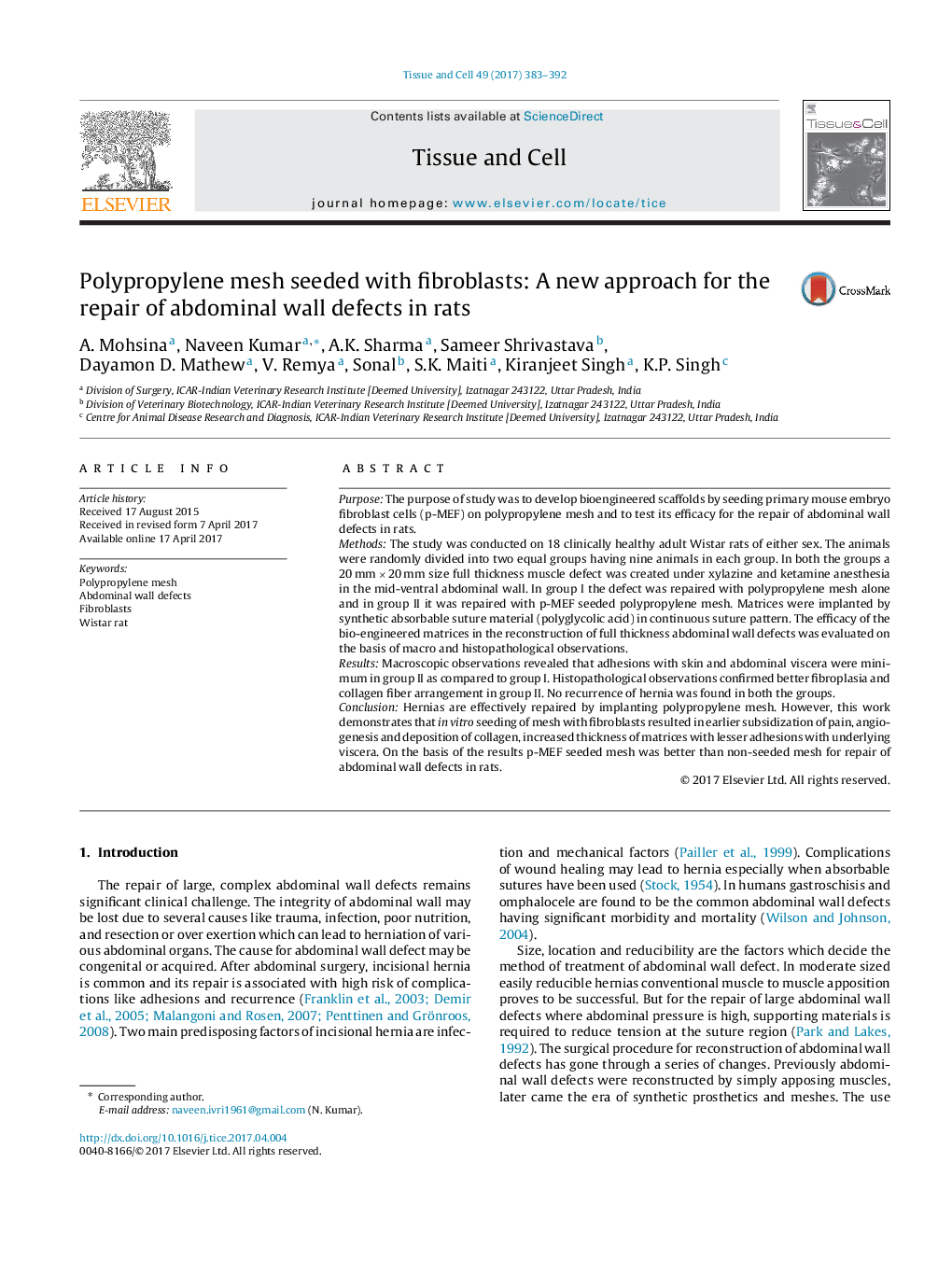| کد مقاله | کد نشریه | سال انتشار | مقاله انگلیسی | نسخه تمام متن |
|---|---|---|---|---|
| 5535081 | 1402212 | 2017 | 10 صفحه PDF | دانلود رایگان |
- Developed bioengineered scaffolds by seeding primary mouse embryo fibroblast cells (p-MEF) on polypropylene mesh.
- Successfully tested the efficacy of the bio-engineered matrices in the reconstruction of full thickness abdominal wall defects in rats.
- In vitro seeding of mesh with fibroblasts resulted in earlier subsidization of pain, angiogenesis and deposition of collagen, increased thickness of matrices with lesser adhesions with underlying viscera.
PurposeThe purpose of study was to develop bioengineered scaffolds by seeding primary mouse embryo fibroblast cells (p-MEF) on polypropylene mesh and to test its efficacy for the repair of abdominal wall defects in rats.MethodsThe study was conducted on 18 clinically healthy adult Wistar rats of either sex. The animals were randomly divided into two equal groups having nine animals in each group. In both the groups a 20 mm Ã 20 mm size full thickness muscle defect was created under xylazine and ketamine anesthesia in the mid-ventral abdominal wall. In group I the defect was repaired with polypropylene mesh alone and in group II it was repaired with p-MEF seeded polypropylene mesh. Matrices were implanted by synthetic absorbable suture material (polyglycolic acid) in continuous suture pattern. The efficacy of the bio-engineered matrices in the reconstruction of full thickness abdominal wall defects was evaluated on the basis of macro and histopathological observations.ResultsMacroscopic observations revealed that adhesions with skin and abdominal viscera were minimum in group II as compared to group I. Histopathological observations confirmed better fibroplasia and collagen fiber arrangement in group II. No recurrence of hernia was found in both the groups.ConclusionHernias are effectively repaired by implanting polypropylene mesh. However, this work demonstrates that in vitro seeding of mesh with fibroblasts resulted in earlier subsidization of pain, angiogenesis and deposition of collagen, increased thickness of matrices with lesser adhesions with underlying viscera. On the basis of the results p-MEF seeded mesh was better than non-seeded mesh for repair of abdominal wall defects in rats.
Journal: Tissue and Cell - Volume 49, Issue 3, June 2017, Pages 383-392
